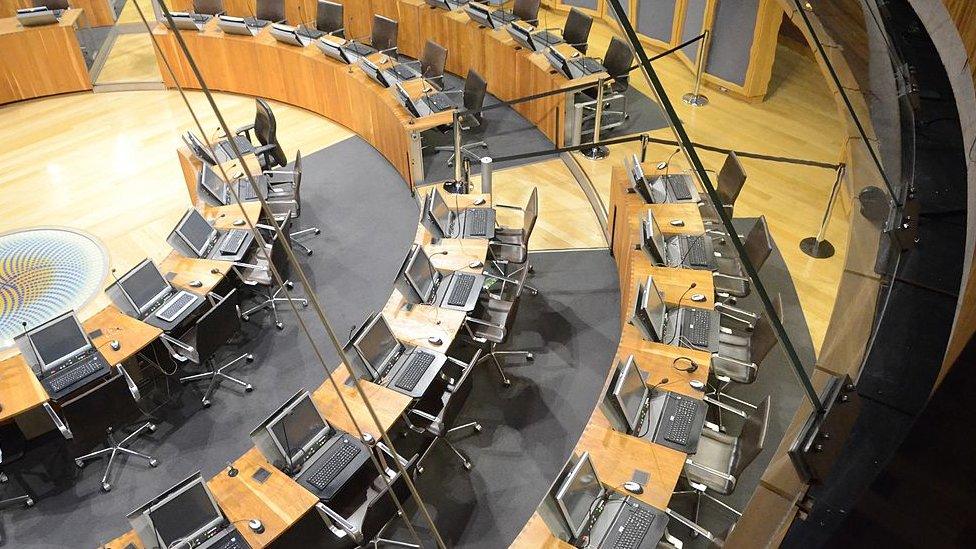Senedd: Expansion plans could harm Labour, unions warn
- Published
- comments
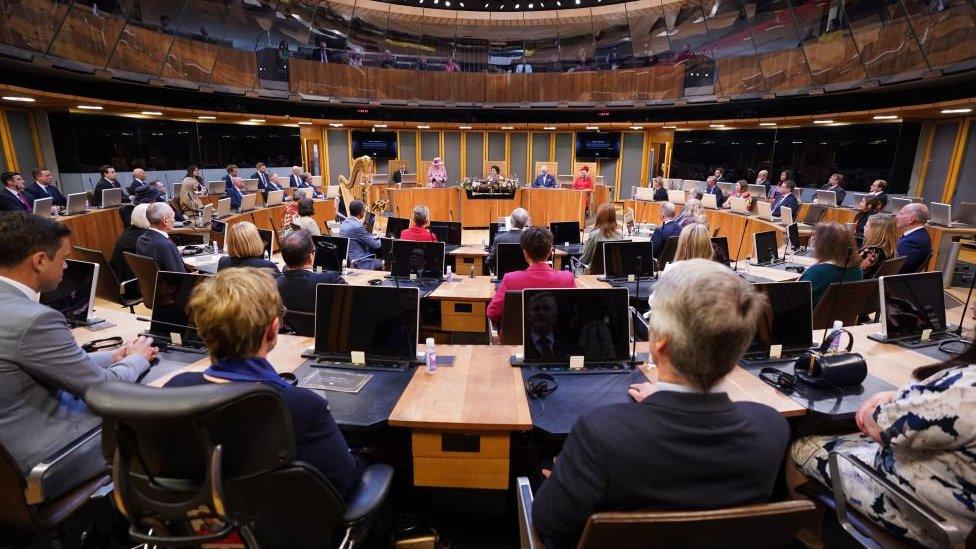
The Senedd currently has 60 members, and the proposals would see that rise to 96
Three Labour-backing unions have expressed "serious concerns" about proposals to overhaul how the Senedd is elected.
GMB, Community and Usdaw said the scheme - part of plans for more politicians - could make it harder for Welsh Labour to retain power.
It comes ahead of a Labour conference on Saturday to decide if the party will endorse the moves, backed by First Minister Mark Drakeford.
Welsh Labour has been asked to comment.
One of the party's Senedd members has also raised doubts about the "very large" constituencies proposed.
But Mike Hedges, who represents Swansea East, expects the conference to "overwhelmingly support the change" and does not think there was "any doubt" it will go through.
He said he believes the plans will have support from major trade unions and three quarters of constituency Labour parties (CLPs).
Although GMB, Usdaw and Community are opposed to the proposals, they have the backing of Wales' largest unions - Unite and Unison.
Membership forms a key part of Labour's conference voting rules.
The Welsh government struck a deal with Plaid Cymru in May to increase the number of Members of the Senedd (MS) from 60 to 96 by the 2026 election.
It will see a new system of voting where members of the public choose to back a single party list, with each constituency electing six MSs.
Parties would be subject to a gender quota, in a bid to encourage better representation of women.
But the way the system would work has prompted opposition from Labour groups in Swansea East, Llanelli and Rhondda, where the MP Chris Bryant said it would leave politicians "less connected to voters".
'Lack of time'
On Saturday, delegates from Welsh Labour groups and affiliated bodies - including trade unions - will vote on whether to support the reforms.
A letter seen by BBC Wales makes clear the opposition of the GMB, the steelworkers' union Community and Usdaw, which focuses on the retail sector.
Written to constituency Labour parties (CLPs) in mid-June, it outlined the unions were "unable to support the proposals being put forward".
"Whilst we are keen to ensure the Senedd is given the tools necessary to scrutinise ministers and develop laws for Wales, we believe that there is a lack of time for the proposals to be debated and scrutinised within the party, trade unions and affiliates," the unions said.
They said they were concerned about "any changes to [the] Senedd electoral system that would make it more difficult to secure a Welsh Labour government and would do a disservice to workers, trade unionists and the citizens of Wales".
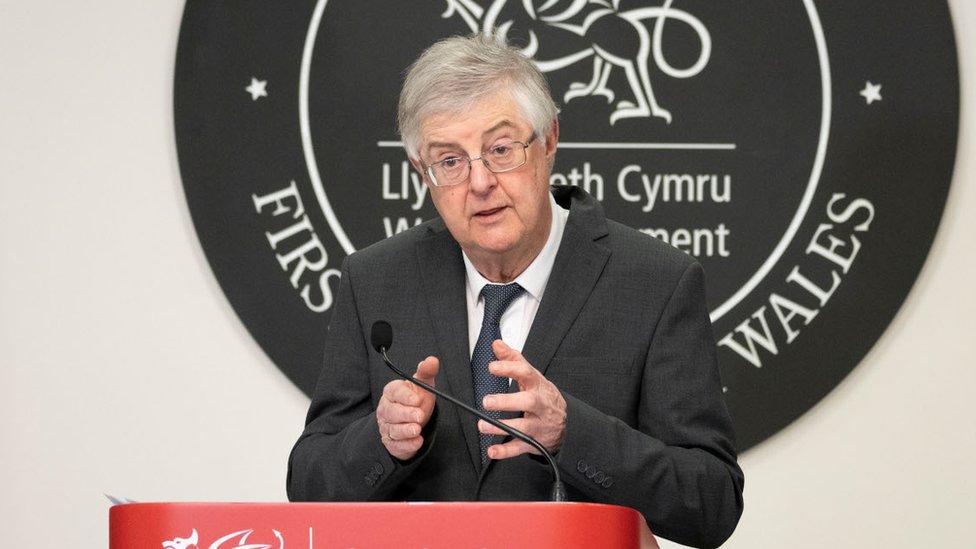
Mark Drakeford supports the plans, which some unions have expressed concerns about
The letter added the unions have "serious concerns that larger constituencies will erode the link between Members of the Senedd and local parties and affiliated organisations".
It gave CLPs a template motion for discussion, asking them to lobby the party to delay the conference vote and to hold a "comprehensive consultation".
BBC Wales was told the Welsh Executive Committee rejected the proposal to delay.
The letter was signed by Tom Hoyles of GMB, Rob Edwards of Community and Nick Ireland of Usdaw.
Usdaw declined to comment. GMB and Community were also asked to respond.
Steve Belcher of Unison Cymru/Wales said the union "believes that the D'hondt system, external of electing MSs" - the mathematical system that will be used to elect Senedd members "should be subject to periodical review".
But, he added, the reforms "should be embraced as a way of ensuring that the new enlarged Senedd not only meets gender parity, but that the diversity throughout Wales is reflected in the membership of the Senedd".
'Local democracy demands local candidates'
Mike Hedges said his Swansea East constituency Labour Party has voted against the changes, although the Senedd member was not at the meeting.
The backbencher supports the principle of more Senedd members and gender balance but warned "these constituencies will be very large".
"Local democracy demands local candidates living in the local area," he said.
He added: "Having those very large constituencies is going to make it very difficult for candidates and representatives to be close to voters over such a large area."
Echoing the three unions' concerns, he said the plan "mathematically" makes it harder for Labour to secure a government.
"As a loyal Labour Party member", he said he wanted "a system that benefits the largest party".
How would the constituency changes work?
Under the Drakeford-Price scheme, the Senedd will pair constituencies proposed for Westminster in the ongoing review by the Boundary Commission for Wales, which is not expected to complete until 2023.
The commission says it will confirm boundaries for 32 constituencies - meaning the Senedd would have 16 at the next election, with six Senedd members in each.
There are currently 40 Senedd constituencies which are elected through first past the post, and five regions elected through a list system.
The plans would need to be put to the Welsh Parliament in the form of a new law, and require two-thirds of the Senedd's agreement to come into force.
- Published8 June 2022

- Published8 May 2024
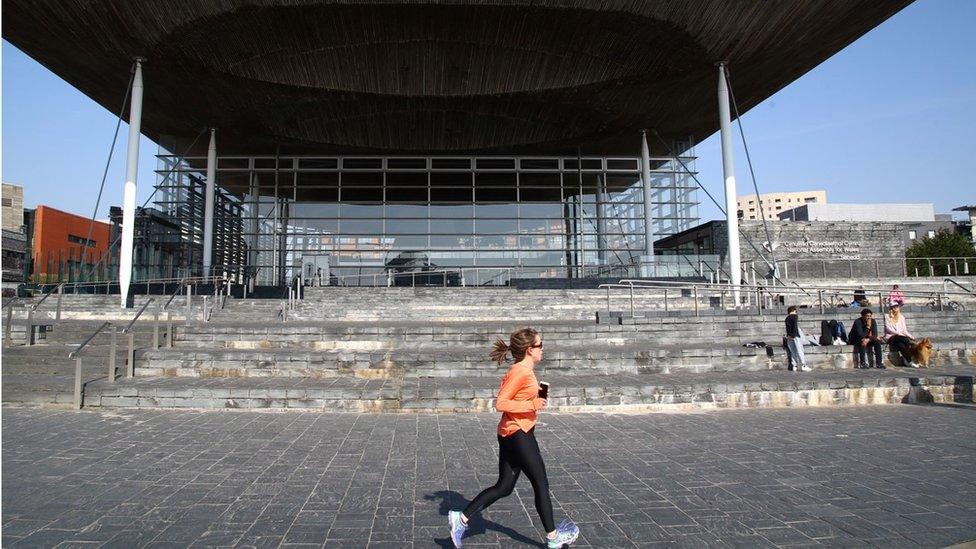
- Published10 May 2022
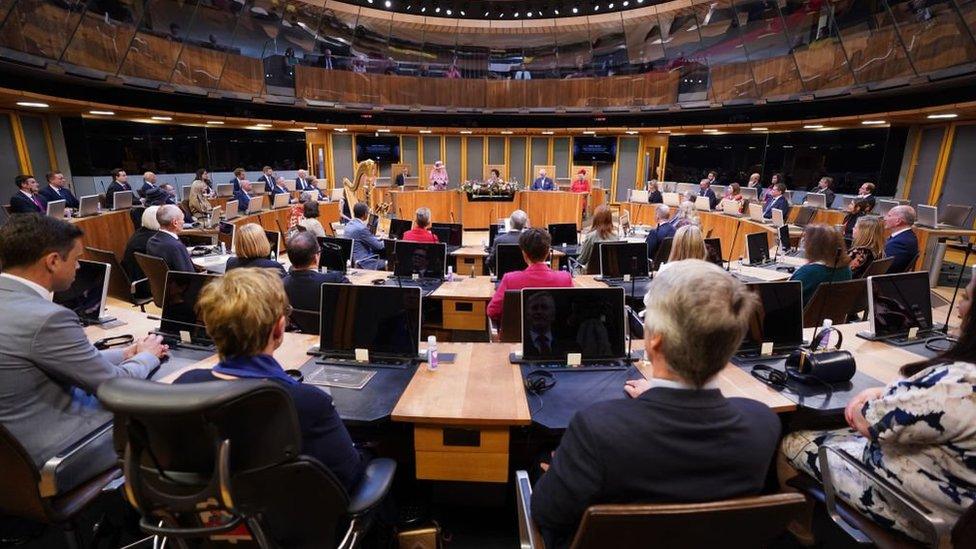
- Published30 May 2022
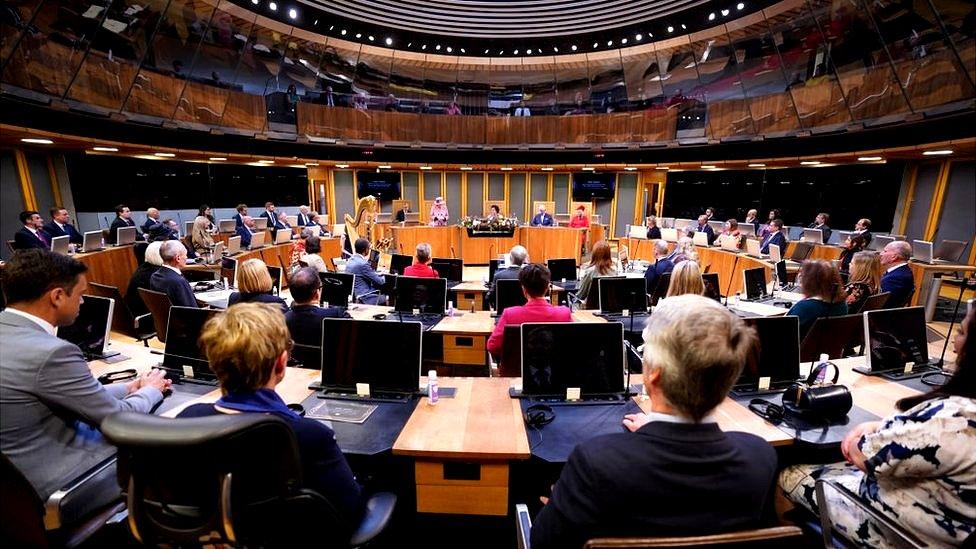
- Published1 June 2022
